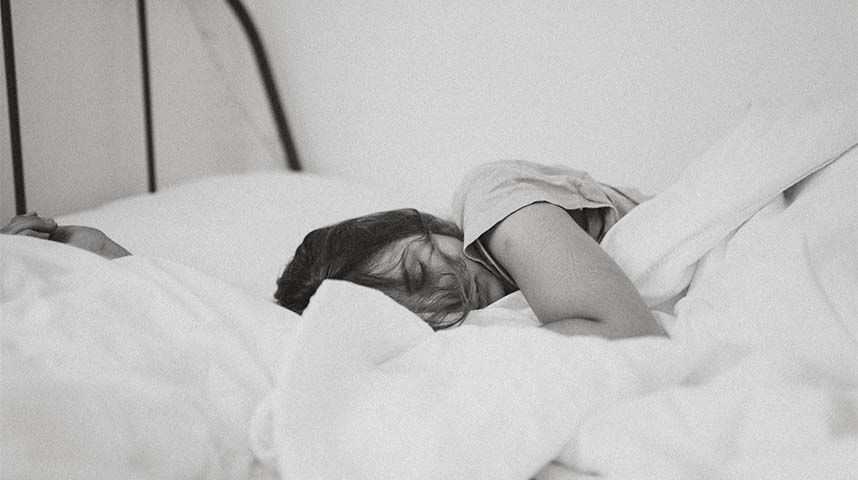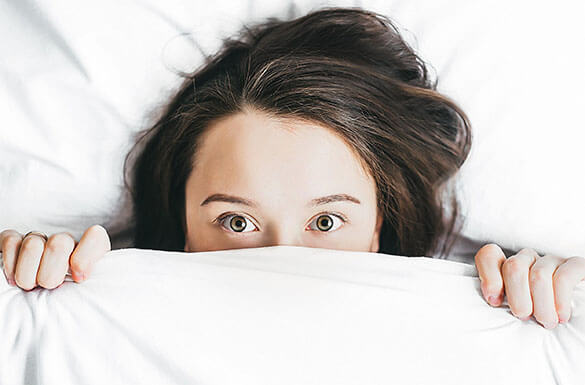Sleepwalking: Symptoms and Causes
Sleepwalking occurs when a person is in deep sleep and at that time, results in walking or carrying out other chores. Studies point that at least 18% of the world’s population sleepwalks at least once in their life. Sleepwalking occurs most commonly in children but many adults too face this when extremely sleep deprived. When a person sleepwalks, they are:
- Unaware of what is happening to them;
- Usually in a deep sleep stage;
- Able to carry out multiple tasks, that range from just getting up and sitting on the bed, walking around the house, or even walking out/driving.
What Causes Sleepwalking?
Medically, sleepwalking is known as somnambulism. Doctors note that there are no evident psychological or psychiatric reasons for sleepwalking and many times, it is a result of sleep deprivation, alcohol or substance consumption, sedative agents or even certain medications that can trigger sleepwalking.
Sleepwalking usually occurs a few hours within falling asleep, when the person is still in the NREM phase of sleep . Amongst children, though, it is more common with children suffering from sleep apnea . The onset of sleepwalking can begin as early as three years old, where it also occurs with bedwetting. Majority cases of sleepwalking that begin at such nascent stages tend to disappear on its own and are never related to any other psychological problems.
In lieu of this, the causes are:
- Chronic sleep disorders and resultant fatigue;
- Obstructive sleep apnea;
- Fever;
- Sedatives or medications;
- Anxiety;
- Stress;
What are the Symptoms of Sleepwalking?
In addition to the obvious walking during sleep, some allied symptoms of sleepwalking are:
- Sleep talking;
- Not responsive when spoken to;
- Incoherent speech or screams;
- Dazed look;
- Difficulty in waking them up during an episode;
- No memory;
- Attacks on person trying to wake the sleepwalker;
- Urinating around the house but not in the restrooms.
Risk of Sleepwalking
In addition to the abovementioned cause, sleepwalking results mainly due to,
- Age
- Hereditary (it may run in the genes)
Where depending on the reason, the risk factors may vary. For instance, sleepwalkers are prone to hurting themselves easily. In addition, they cause disturbance to their partners or family members sleeping in the same house. Recurring sleepwalking can also make one tired and sleepy during the day where extreme fatigue causes daytime sleepwalking as well.
Treatment for Sleepwalking
Typically, isolated episodes do not require any intervention and could be a direct result of the above mentioned causes. However, recurring sleepwalking episodes require the attention of a professional to identify the underlying cause. Moreover, chronic sleepwalking amongst adults could also indicate other mental health problems.
Having said this, there are no specific treatments for sleepwalking. Identifying whether or not you face the common symptoms could help identify the root cause. In cases of sleep disorders, simply adopting a healthy sleep routine or changing the sleep environment could stop sleepwalking. But, in the case where medications trigger sleepwalking, it is best to consult a doctor to get a different set of medications prescribed.
Diagnosing Sleepwalking
Medically speaking, sleepwalking can be diagnosed with the following tests:
- Physical exam: listing the complete medical history of self and the family;
- Sleep Study: Such as Polysomnography to record heart rate, brain waves, and movements while sleeping;
- EEG: To map brain activity, only in cases of extreme sleepwalking.











